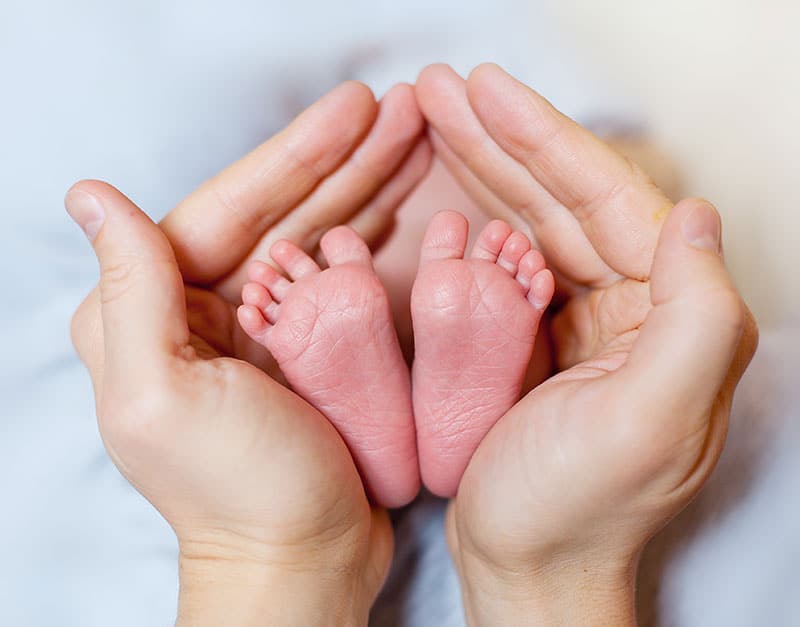How Long Does Medicaid Cover Babies After Birth?
If you are a pregnant woman enrolled in Medicaid Emergency Services to help cover childbirth costs, your newborn will automatically be enrolled in Medicaid. Your Medicaid plan covers newborns up until their first birthday, which will then require parents to enroll that child in another government assistance program for child healthcare, such as the Children’s Health Insurance Program (CHIP).
The same services are provided for the child as the adult enrolled in Medicaid for the first year after birth and will not require parents to update their Medicaid plan if their income level changes due to the mother going back to work.

Medicaid Coverage For Newborns
As mentioned above, newborns are automatically covered by their parent’s Medicaid coverage plan. Medicaid will assist with the process of childbirth along with all the necessary post-birth care services. The specific services provided by Medicaid differ state by state, typical with most Medicaid programs. Parents are encouraged to enroll their newborn in their healthcare coverage program as quickly as possible within the first year to ensure the proper steps have been taken for the child’s health.
Often, parents can choose to have their baby added to their existing Medicaid plan for convenience. Many parents choose to enroll their baby into their healthcare assistance plan better suited for their needs. Eligibility for Medicaid benefits is based on income level to help those who need it most. More information on Medicaid can be found here: Medicaid | Medicaid
Children’s Health Insurance Program (CHIP)
When the first year of Medicaid coverage is about to expire, many parents turn to the Children’s Health Insurance Program (CHIP) for healthcare assistance. CHIP provides free or low-cost coverage for children of all ages up until they become adults. Children can develop health issues in their younger years which may require extensive testing and treatment. These unforeseen events tug at the heartstrings of the family and can be a costly endeavor. Much like Medicaid, CHIP combines state and federal funding and regulations, which are dispersed similarly.
Each state has its coverage limitations, and eligibility requirements for children enrolled in CHIP. Aimed towards helping low-income families, you may qualify for CHIP even if you have an annual salary that is too high to qualify for other forms of government aid such as Medicaid. CHIP is an excellent option for children that would otherwise not have health insurance coverage. All legal guardians have the option of enrolling their child in the CHIP program, not just the birth parents. Specific services covered by the Children’s Health Insurance Program include but are not limited to:
- Shots
- Dental and vision care
- Regular check-ups
- Hospital care
- X-rays and lab tests
- Treatment of special health needs
CHIP program information can be found here: Children’s Health Insurance Program (CHIP) Eligibility Requirements | HealthCare.gov
Medicaid Coverage During & After Pregnancy
If you are a pregnant woman receiving specific aid from Medicaid for the costs associated with pregnancy before birth, these benefits will continue after birth for up to 60 days. At that point, your benefits may end or become adjusted. In most cases, adults cannot adjust their health coverage plan until it has ended; however, women expecting a child are among the few exceptions. Pregnant women can adjust their healthcare services before and after a child is born to ensure they choose the best plan.
Notifying Medicaid about having a new child in the family can lower your rates and expand coverage. Because Medicaid does not have a restricted enrollment period, new mothers can apply for aid during any part of the calendar year. Eligibility for pregnant women is based on factors that include,
- Income
- Number of people in the household
- State residency
- Immigration status
If the entire household’s annual income disqualifies the pregnant women for full-scope Medicaid coverage assistance, there is still hope! Medicaid has a particular faction of services for these individuals that cover pregnancy-related services and other conditions that may pose a risk during the pregnancy. Each state chooses its maximum income cutoff to receive pregnancy-related aid through Medicaid. These income requirements range from 133% to 185% of the Federal Poverty Level guidelines.
Conclusion
If you receive healthcare assistance through Medicaid, your newborn will automatically receive benefits up until their first birthday. Mothers receiving Medicaid benefits specifically for pregnancy-related causes will continue to receive these benefits up to 60 days after birth. Researching Medicaid coverage in your state for pre and post-birth can give you a better idea of which healthcare plan will be best for your family.
Starting the process towards enrolling your child in their healthcare either through Medicaid or the Children’s Health Insurance Program as quickly as possible will ensure a smooth transition of coverage. Having a child can qualify you for other forms of government aid you may not have previously qualified for. Even if you do not think you will be eligible for government assistance, you could receive other support forms by doing so.
Policies and regulations are frequently changing for state and government-funded agencies; if you were denied in the past, you and your family might be eligible now. Often, if you are denied government assistance, that agency will recommend other forms of aid that may better suit your needs.
If this article about Medicaid was helpful, you might qualify for free wireless service through the federal Lifeline program. You can check your eligibility now by clicking here: Free Cell Phone Service With Government Program | StandUp Wireless


